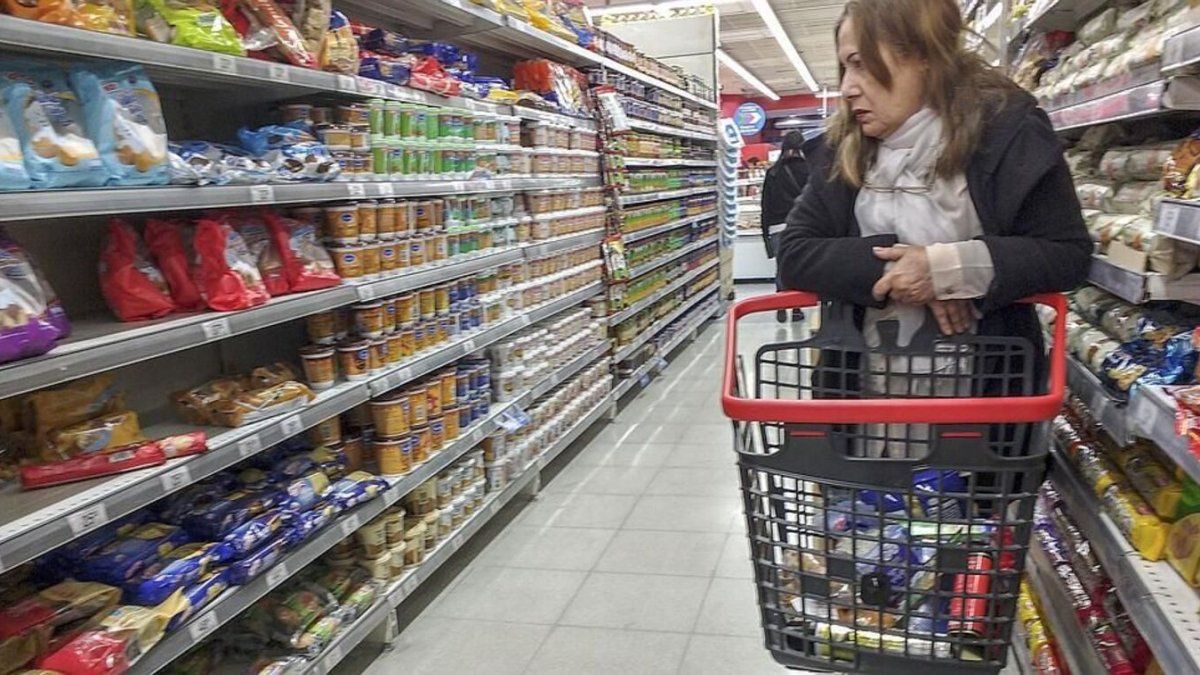Given the recent volatility of the markets, the Argentine Supermarkets Chamber (Cas) and the Argentine supermarket and self -service Federation (FASA) launched a statement in which they claim “extreme prudence”, Both suppliers and the supermarket associates themselves.
The entities indicated that supermarkets must “Act determined in defense of your customers”, Rejecting speculative price increases. In that sense, they recommended to suppliers to observe the situation before transferring increases.
“To those who increased their prices to cover the exchange fluctuations of the last weeks, we ask them to retraign them, Because the market does not recognize unjustified increases”, Argued against the increase of the dollar sustained since the defeat of the ruling in the mid -term Buenos Aires elections.
At the same time, from Cas and Fasa they highlighted that they accompany “The prudent attitude“Of those who did apply justified increases and in accordance with the fall in demand. To the associates themselves, however, they were advised not to validate increases of those suppliers that”They seek to cover in advance of a crisis situation that, today, seems overcome”
The supermarkets insisted on the need to banish the habit of highlighting “in case.” As they said, his role will continue to act as “A protective shield“So that customers continue to trust the channel.
In dialogue with the political situation, CAS and FASA asked the authorities to “adopt measures required by the current situation of the country, beyond the electoral emergencies.” Among them they mentioned the defense of purchasing power, the promotion of domestic consumption, investment and employment, in addition to “face without delays the tax and labor reforms”
Image
Finally, both entities sought to convey where the increases in gondola come from: “The prices that are imposed many times come from other sectors of the economynot the supermarkets, ”they said.
Sources of Supermercadism within the AMBA relativizes the warning of Cas and Fasa by maintaining that there are lists with increases but “After a while without having registered increases”And that the increases registered in food “They do not necessarily apply in all markets.”
At the same time, they record that the main condition to update list prices is the demand retraction, which “Does not record continues continuous 20 months ago”, Warns a representative voice of the sector.
“Hot dollar”: the definition in the market for the offer of dollars and the impact on prices
Likewise, the volatility of the exchange rate seems to have found a brake after the financial support confirmed by the US Treasury Secretary, Scott Besentwhich in principle will consist of a swap for U $20,000 millions, still subject to treatments between parties.
In addition, three days after having reduced to 0% the withholdings of grains and oilseeds, the Customs Collection and Control Agency (ARCA) reported that they reached the Us $ 7,000 million quota registrationprovided by Decree 682/2025.
Therefore, in this context where an economist in off calls this period as “Hot Sale dollar”For the strong increase in expected currency supply, the official dollar He yielded about $ 14 to $ 1,305.06 for purchase and $ 1,354.03 for sale In the average of the financial institutions published by the Central Bank (BCRA). Meanwhile, in the Nation Bank (BNA), The ticket dropped $ 5 to $ 1,305 For purchase and $ 1,355 For sale.
The fall in the exchange rate does not necessarily mean a reduction in the prices of food and mass consumption goods. “Just as today the dollar goes down, tomorrow rises again, a few days ago was $ 1500. And the same with retentions. It is difficult to raise a dynamic with this level of changes, ”they justify from the sector.
Source: Ambito




